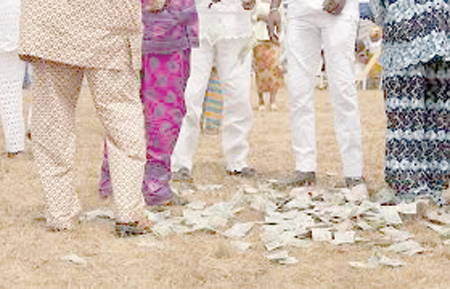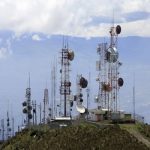In recent times, the Economic and Financial Crimes Commission (EFCC) began to clamp down on abuse of naira, making its determination to put an end to acts that contravene the CBN Act obvious by arresting high-profile offenders.
Despite various enlightenment and sensitisation, many people do not know that some acts which they believe are normal and a way of life are criminal in nature.
To ensure that people know what is considered an offence because ignorance is not an excuse in law, the Central Bank of Nigeria (CBN) has listed activities that constitute abuse of the Naira as parts of efforts to educate citizens on Clean Notes Policy.
The CBN stated that the Clean Notes Policy was instituted in a bid to improve the physical appearance and lifespan of banknotes in circulation.
The public enlightenment might not be unconnected with the arrest and arraignment of a Nigerian socialite, Pascal Okechukwu, popularly known as Cubana Chief Priest, following the recent conviction of popular cross dresser, Bobrisky for the same offence.
Sections 17, 18 and 19 of the CBN Act provides that the CBN is responsible for the issuance of the Naira and kobo and it is against the law for any individual or establishment outside the Central Bank of Nigeria, to print money or be in possession of counterfeit notes.
Section 20 provides that if you are caught and convicted of a counterfeiting crime, you may face up to five years imprisonment with no option of fine.
Activities which amount to the abuse of Naira according to the CBN Act include:
Spraying: It is against the law to spray the Naira banknotes at occasions.
Stapling: It is against the law to staple the banknotes as the pins can cause corrosion of the banknotes.
Writing: It is against the law to write on banknotes.
Tearing: It is also against the law to tear the banknotes
Soiling: It is against the law to dance/stamp on the Naira banknotes. Do not stain the banknotes with oil or ink, as this is also a form of defacing.
Mutilation: According to Section 21 of the CBN Act, a person who tampers with the Naira note or coin is guilty of an offence, punishable by law
Rejection: It is against the law to reject the Naira (Section 20 subsection 5).
Sale: It is against the law to sell currency banknotes.
The improper handling of the Naira leads to increase in currency management costs due to the high cost of banknotes replacement. It erodes the sense of pride and confidence that Nigerians should feel in their currency, and ridicules the nation while defaced or torn banknotes slow down sorting process resulting in lower output of clean banknotes. Also, prevalence of dirty banknotes in circulation serves as a potential health hazard to the citizenry.
ALSO READ: One feared killed, two others injured in LAUTECH students’ clash
WATCH TOP VIDEOS FROM NIGERIAN TRIBUNE TV
- Let’s Talk About SELF-AWARENESS
- Is Your Confidence Mistaken for Pride? Let’s talk about it
- Is Etiquette About Perfection…Or Just Not Being Rude?
- Top Psychologist Reveal 3 Signs You’re Struggling With Imposter Syndrome
- Do You Pick Up Work-Related Calls at Midnight or Never? Let’s Talk About Boundaries






